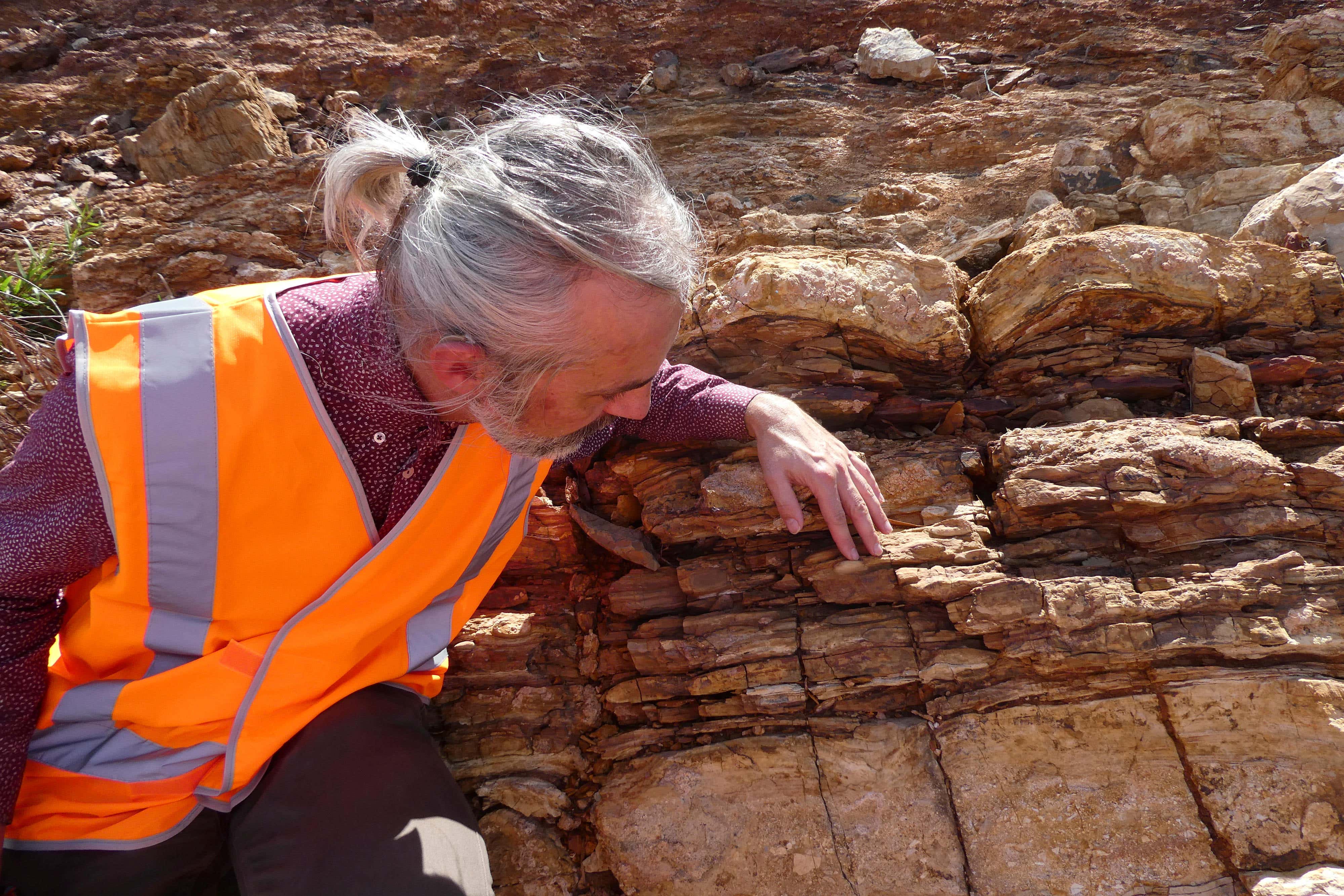Scientists discover lost world of early ancestors in billion-year-old rock
Researchers suggest the organisms could have been the first predators on Earth.

Your support helps us to tell the story
From reproductive rights to climate change to Big Tech, The Independent is on the ground when the story is developing. Whether it's investigating the financials of Elon Musk's pro-Trump PAC or producing our latest documentary, 'The A Word', which shines a light on the American women fighting for reproductive rights, we know how important it is to parse out the facts from the messaging.
At such a critical moment in US history, we need reporters on the ground. Your donation allows us to keep sending journalists to speak to both sides of the story.
The Independent is trusted by Americans across the entire political spectrum. And unlike many other quality news outlets, we choose not to lock Americans out of our reporting and analysis with paywalls. We believe quality journalism should be available to everyone, paid for by those who can afford it.
Your support makes all the difference.The discovery of a lost world of ancient organisms that lived in Earth’s waterways at least 1.6 billion years ago could change scientists’ understanding of our earliest ancestors, new research has suggested.
Known as the Protosterol Biota, the microscopic creatures are part of a family of organisms called eukaryotes.
Eukaryotes have a complex cell structure that includes mitochondria – known as the powerhouse of the cell, and a nucleus that acts as the control and information centre.
They are thought to have been in existence for as long as two billion years.
Fossils of these organisms are scarce, so researchers have tried searching for molecular fossils – such as distinct steroid substances eukaryotes may leave behind in rocks.
Modern forms of eukaryotes that inhabit Earth today include fungi, plants, animals and single-celled organisms such as amoebae.
Molecular remains of the Protosterol Biota detected in 1.6-billion-year-old rocks appear to be the oldest remnants of our own lineage
Dr Benjamin Nettersheim, who completed his PhD at the Australian National University (ANU) and is now based at the University of Bremen in Germany, said: “Molecular remains of the Protosterol Biota detected in 1.6-billion-year-old rocks appear to be the oldest remnants of our own lineage – they lived even before LECA (last eukaryotic common ancestor).
“These ancient creatures were abundant in marine ecosystems across the world and probably shaped ecosystems for much of Earth’s history.
“Modern forms of eukaryotes are so powerful and dominant today that researchers thought they should have conquered the ancient oceans on Earth more than a billion years ago.
“Scientists have long searched for fossilised evidence of these early eukaryotes, but their physical remains are extremely scarce. Earth’s ancient oceans rather appeared to be largely a bacterial broth.
“One of the greatest puzzles early evolution scientists have been trying to answer is: why didn’t our highly capable eukaryotic ancestors come to dominate the world’s ancient waterways? Where were they hiding?
“Our study flips this theory on its head. We show that the Protosterol Biota were hiding in plain sight and were in fact abundant in the world’s ancient oceans and lakes all along.
“Scientists just didn’t know how to look for them – until now.”
Experts say humans and all other creatures with nucleated cells can trace their ancestral lineage back to the Last Eukaryotic Common Ancestor (LECA), which lived more than 1.2 billion years ago.
The discovery was made by researchers from ANU who suggest the organisms could have been the first predators on Earth.
These ancient creatures probably shaped ecosystems for much of Earth’s history.
Protosterol Biota lived at least one billion years before any animal or plant emerged, researchers suggest.
Professor Jochen Brocks from ANU, who made the discovery with Dr Nettersheim, said the Protosterol Biota were more complex than bacteria and presumably larger, although it is unknown what they looked like.
“We believe they may have been the first predators on Earth, hunting and devouring bacteria,” he said.
According to Prof Brocks, these creatures thrived from about 1.6 billion years ago up until about 800 million years ago.
However, exactly when the Protosterol Biota went extinct is unknown.
In order to make the discovery, the scientists studied fossil fat molecules found inside a 1.6-billion-year-old rock that had formed at the bottom of the ocean near what is now Australia’s Northern Territory.
The molecules possessed a primordial chemical structure that hinted at the existence of early complex creatures that evolved before LECA and had since gone extinct.
Such molecules were first predicted to have existed by Nobel laureate Konrad Bloch in 1994, but he predicted they would never be found because they cannot survive in the geological record.
The findings are published in the Nature journal.